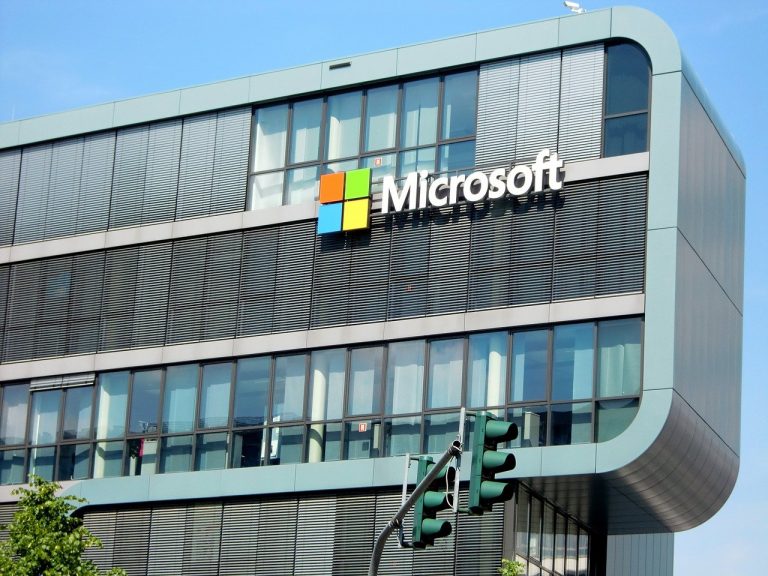The Microsoft Bing search engine has been accused of censoring “Tank Man” pictures in its search results, one of the most iconic images from the Tiananmen Square Massacre. The alleged censorship coincides with reports that Microsoft is creating a global system that could threaten online privacy and anonymity.
On June 4th, the eve of the 32nd Tiananmen Massacre anniversary, people worldwide commemorated the thousands of pro-democracy activists who were killed, arrested, and tortured in 1989 by the Chinese Communist Party (CCP). Some documents estimated a death toll of around 10,000.
However, when people searched for “Tank Man” on Bing, the search engine returned with a notification that “there are no results for tank man.” The “Tank Man” picture, taken on Jun. 5, 1989, shows a lone man, carrying what appears to be grocery bags, standing in front of a column of Chinese tanks during the regime’s violent crackdown. The image became a symbol of resistance against the CCP.
Shane Huntley, a member of Google’s Threat Analysis group, tweeted about the issue of image censorship on Bing. “I’d love to hear @BradSmi explanation on this. I know Microsoft censor for the CCP in China, but this search is from the US,” he said in a tweet. @BradSmi is the Twitter handle of Microsoft President Brad Smith.
People from the UK, Canada, Kenya, and so on replied to Huntley’s tweet, saying that their “Tank Man” image searches on Bing were also not returning results. Users reported that the images were also censored in DuckDuckGo and Yahoo search results, both of which use Bing’s search engine.
Success
You are now signed up for our newsletter
Success
Check your email to complete sign up
In a statement issued to Vice, Microsoft said that the issue was triggered “due to an accidental human error,” and that they were “actively working to resolve” it. The company has since corrected the issue.
Kenneth Roth, Executive Director of Human Rights Watch, criticized Bing in a tweet, stating, “Outrageous: on the anniversary of the murderous Tiananmen Square crackdown, Microsoft’s Bing search engine suddenly won’t return any images if you search for ‘tank man,’ the iconic photo. I just tried. Hard to believe this is an inadvertent error.”
According to a Reuters report, a significant percentage of Microsoft employees who work on the Bing search engine are from China, with some working on image recognition software.
Microsoft’s LinkedIn platform also censored content just days prior to the Tiananmen Anniversary. On June 3rd, some staff members from The Epoch Times, including those from Sweden, United States, and Turkey, were informed by the platform that their profile, activity, and shared items would be “invisible” to people accessing LinkedIn from China “due to local legal requirements” set up by Beijing.
“Freedom of expression and opposition to censorship are incompatible with Chinese regulations. Chinese regulations—that is, Chinese Communist Party rule—ultimately stifles the economic opportunities, blots out the dreams, and violates the rights of Chinese citizens,” Benjamin Weingarten, a contributor at The Epoch Times who received the LinkedIn message, said to the media outlet.
Expanding tech censorship
Microsoft is also moving ahead with a project that could have serious ramifications regarding Internet freedoms. On Feb. 22, 2021, Microsoft announced the formation of the Coalition for Content Provenance and Authenticity (C2PA), which is composed of companies such as BBC, Adobe, Intel, and Truepic. The coalition is aimed at “combating misleading content.”
“C2PA member organizations will work together to develop content provenance specifications for common asset types and formats to enable publishers, creators, and consumers to trace the origin and evolution of a piece of media, including images, videos, audio, and documents,” according to the Microsoft statement.
Essentially, tech companies will develop a system enabling them to trace the authors of specific content, threatening online privacy and anonymity. In a write-up at Breitbart, Allum Bokhari, the author of “#DELETED: Big Tech’s Battle to Erase the Trump Movement and Steal The Election,” warned that the censorship practices of tech companies would expand from search engines and social media platforms to hardware and software.
He wrote that the C2PA plan could end up creating a system that could “track and de-anonymize information from the moment it is created on a computer.” By attaching certain signals to content, the tech companies could ensure that content deemed “misleading” would be suppressed no matter where it appeared online.
Bokhari stated that it was the “most dangerous plan yet” from big tech, and that “there will be nowhere to hide” once such practices are implemented. “Even the brazen behavior of Facebook, Twitter, and Google over the past year — the election interference, the censorship of a President, the mass-censorship of grassroots political movements — pales in comparison to this,” he wrote.














